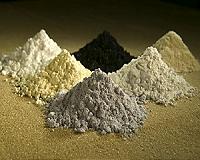| . |  |
. |
Washington (UPI) Nov 11, 2010 The United States failed to reach a trade deal with South Korea Thursday because of demands that Seoul lift beef import restrictions, continuing a two-year stalemate on the pact, experts said. U.S. President Barack Obama, who is attending Group of 20 summit in Seoul, said the two countries will resolve the issue in a few weeks. "If we rush something that can't garner popular support that's going to be a problem," President Obama said at a news conference with South Korean President Lee Myung-bak. "We think we can make the case, but we want to make sure that case is air tight." The Bush administration signed a free trade agreement with South Korea in June 2007 to eliminate tariffs on imports of goods ranging from food to automobiles. But lawmakers of both nations haven't ratified the deal. The major sticking point involved South Korea's cap on importing American cattle more than 30 months old. The U.S. move to halt talks is based on a concern that the new Congress appears more political divided, which could make it harder to reach an agreement on the resolution. "Ultimately this is a political issue in the United States," said Troy Stangarone, director of congressional affairs and trade at Korea Economic Institute, in a phone interview. "If they don't have a deal by the time the next Congress sits, the odds start rapidly decreasing that [the deal] will get done." Imported U.S. beef stirred a mass protest in South Korea in 2008 over food safety because of concerns that older cattle might have a risk for mad-cow disease. South Korean representatives, afraid of facing another backlash, have taken a firm stance on maintaining a partial restriction. South Korea is the fifth largest U.S. agricultural export market, representing $3.9 billion out U.S. total agriculture exports of $41 billion, according to the Office of the U.S. Trade Representative. U.S. beef producers, a longtime supporter of the deal, expressed disappointment and warned that the delay risks letting others into the lucrative South Korean market. "As we do nothing, Australians are currently hammering out [the free trade agreement] that would probably go through before us, and we're going to see the ripple effect for 10 years down the road," said Mike Deering, a spokesman with National Cattlemen's Beef Association. The European Union signed a free trade agreement with South Korea last month, which is expected to take effect in July. Another stumbling block involved South Korean standards for automobiles' emission and fuel economy. The U.S. objective is to ensure transparency of the regulations and consistency of the implementation, said Jeffrey Schott, a senior fellow with Peterson Institute for International Economics.
Share This Article With Planet Earth
Related Links Global Trade News
 Japan says China still blocking rare earth exports
Japan says China still blocking rare earth exportsSeoul (AFP) Nov 11, 2010 Shipments of valuable rare earth minerals from China to Japan still appear to be on hold, Japanese officials said Thursday, urging Beijing to resume exports after a diplomatic row. "There is no noticeable progress in this regard," Hidenobu Sobashima, deputy director general at the foreign ministry, told reporters as the G20 group of rich and emerging nations opened a two-day summit in Seoul. ... read more |
|
| The content herein, unless otherwise known to be public domain, are Copyright 1995-2010 - SpaceDaily. AFP and UPI Wire Stories are copyright Agence France-Presse and United Press International. ESA Portal Reports are copyright European Space Agency. All NASA sourced material is public domain. Additional copyrights may apply in whole or part to other bona fide parties. Advertising does not imply endorsement,agreement or approval of any opinions, statements or information provided by SpaceDaily on any Web page published or hosted by SpaceDaily. Privacy Statement |